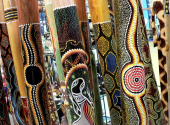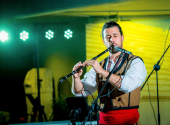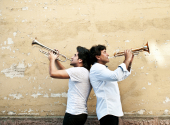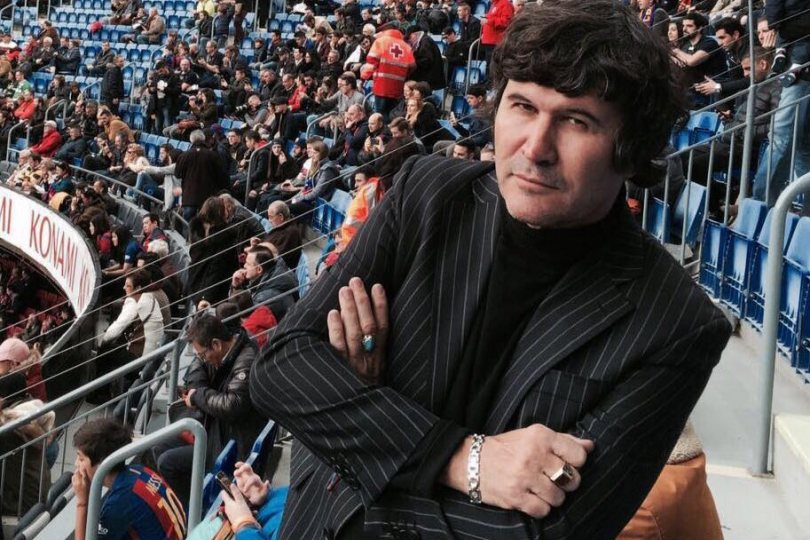
All Eyes on Spain with Cesar Andion: "Spain Is the Gateway to Latin America and Europe"
If you haven’t heard about the underground scene from Madrid in the '80s, it’s time for you to catch up. Malasaña was the neighborhood where the punk and alternative scene was to be found—back then, lots of things were yet to be discovered, but its greatness shouldn’t be denied. For this edition of All Eyes on…, to learn more about the current state of affairs in Spain's music scene, I talked with Cesar Andion. Head of The Spanish Wave showcase, Dcodelab in Dcode festival, PR & Talent expert for Live Nation Spain, and lecturer at LN Live Music Master at UCM, Cesar shares his insights and knowledge about the Spanish scene and its development and advises new artists on how to get started in the industry.
Cesar Andion has more than 30 years of experience in the musical industry and in this interview, we talk about how it all got started. From DJing at parties he organized in the legendary Spanish underground scene of the '80s, to working with new emerging artists in the current scene. Here, you will not only get to know Cesar and his career, but also his insights into how the Spanish scene has developed ever since he started being a part of it, and how, even though the word has changed since the '80s, quality is still the main thing an artist should focus on.
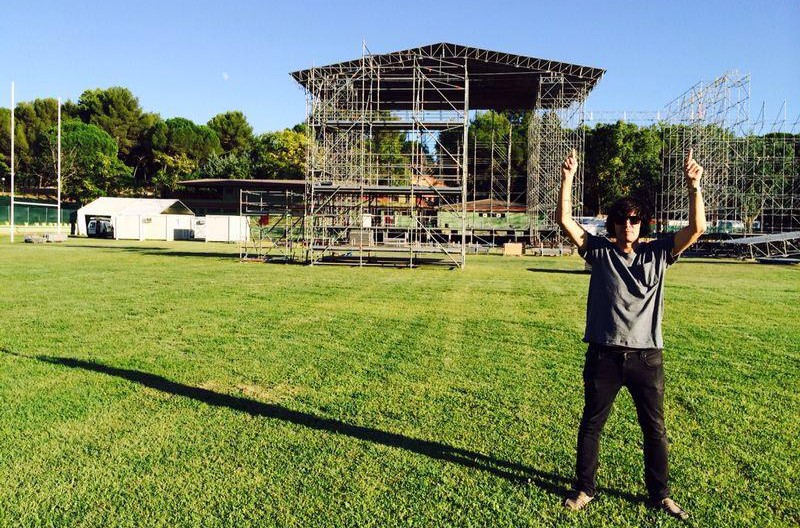
Can you tell us about your journey in the music industry? What made you decide to be a part of it in a professional way?
The truth is that my journey is very DIY. I was a music lover ever since I started studying law. But I discovered music at the age of 14 or 15 in the middle of the explosion of the New Wave. That barrage of good music around the world in the USA, UK, and Spain, was so refreshing, it was the complete opposite to the dinosaur rock of the '70s. This music had a huge impact on me. I started to "play" records at parties that I organized with other friends from a very young age, and soon friends who were playing in bands began to appear. I always say that I have come to this field because I was never good with instruments, so around the '80s I began to be the friend who “acted” as a manager.
At the end of the '80s, I started working in a large distributor of alternative labels that was called Running Circle—we distributed labels as incredible as City Slang, Crammed, Crypt, Epitaph, Lookout, and Sub Pop. This work gave me access to the most interesting albums and artists of those years. I foresaw that all that college rock, grunge, and Britpop was going to become a “wave,” as important as the one that I had experienced in 1978/1979.
At Running Circle, I started organizing tours for artists from these labels by fax and phone calls. When I was the manager of the band Sex Museum in the '80s, I had already organized their first two European tours by letter and telephone. And as I had predicted, the boom arrived. Nirvana, Pearl Jam, Janes Addiction, Faith No More, among others made the entire industry change—from labels, media, and radios to the entire audience. Around that time, the entire music scene stopped being "alternative" because many of these artists—Nirvana, Oasis, Blur—were already filling stadiums
With this boom, Roberto Grima, President of Live Nation, asked me to run the company's Madrid office. My functions were basically everything: collecting the tickets, taking them to SGAE (the Spanish society for authors and publishers, ed.), distributing them at the points of sale, collecting them, making the promo, etc.
To sum up, professionalization was not something that I thought out, but something that happened naturally. Obviously, my love for music and the music industry had something to do with it.
Live Nation Spain is a leading entertainment company that works with artists from all around the world, such as The Cure, Ed Sheeran, Foo Fighters, and other musicians of impressive renown. Can you tell us a bit about your role in PR?
I have had many roles in my career, mainly related to promotion, but in the beginning, we were all doing everything because there were basically 5 of us in the team.
For many years now, my role has been in PR & Talent. I represent the company in the national and international congresses, fairs, and markets, but also with agents, managers, and artists with whom we work. From lecturing on panels to going to football with managers or artists (which I love).
Also, for the past year, I have directed the national talent export project "The Spanish Wave" in many international emerging talents showcase festivals.
From the start of your career in the '80s to the current scene, what do you consider to be the most significant change that the internet has brought to the music industry?
Access to information, of course! From constantly discovering new artists to finding the right contacts. Before, it used to be difficult to know who represented who. Now, it only depends if they decide to answer you! The truth is that the internet is the digital revolution that has changed the world, like the steam engine in 1800.
The internet has brought more business. Since the flow of talent and information is greater, the business also grows. Tours were organized with fax and telephone before, which was obviously more complicated, but I also think it was less stressful. Now we are "enslaved" to emails or even WhatsApp—all the time.
What I would have liked is to have had internet in 1982 to see the videos of my favorite bands from the '60s, '70s, and '80s that I didn't get a chance to see. However, I still have my VHS and Beta cams.
You have lived in New Zealand and Australia for many years, in other interviews you commented that the influence of radio there is very great. What means are the most relevant in Spain for making yourself known and for a musical project to be distributed?
Well, in NZ the quality is very high—both the media and the artists. It looks like a small country, but it exports great artists such as Lorde, Split Enz, Neil Finn, Ladyhawk, Fat Freddy's Drop, and Benee.
I believe that the most important thing is to surround yourself with a good working team: manager, label or distributor, publishing, PR, or communication agency; it is essential to have a good team that produces structure and strategies. It’s not easy to get this, so you must get their attention. For this, the artist must start by being his/her own best PR. Digital tools are essential!
Many concerts had to be canceled given the current context. How did the pandemic affect your work?
The first year, I stopped traveling, which was good for me because I’ve been doing it for many years in a row nonstop because of fairs and festivals. But after a while, this had its limit. Since September I´ve started to travel abroad again, and I hope that Omicron doesn’t put everything on hold and puts us back in the same hole of restlessness, anxiety, and "no business" that we had before. During the pandemic, I had also time to develop The Spanish Wave and other PR and side business projects for Live Nation Spain—some of them will be announced shortly. They are amazing!
When it comes to betting on new artists, what is the most important thing for you to take into consideration?
The most important thing is the quality of the whole concept, whatever the style is. The songs and the "artistry" on stage. You can have magnificent music and then be a chump on stage… It is the whole which attracts.
Also, I take into consideration the possible future or progression of the artist or band. We need to think ahead of the development in the artist career in terms of The Spanish Wave—obviously whether it is exportable or if it may have a minimal impact on the foreign industry. Spain is the gateway to Latin America and Europe; we export, and we have plenty of talent.
Do you have any advice for artists looking to make their way into the music industry?
To be good at what you do, have patience, surround yourself with a good team, take measured steps, be unique and LISTEN TO MUSIC. I find many artists who do not listen to music and have zero references from the past. Elvis Costello listened to a lot of R&B and country before starting his career, Jay Z listened to a lot of soul, funk, and primal hip hop. People who simply want to have a band without doing their research are making a mistake! It is as if Picasso had not studied Velazquez...!
How do you see the current Spanish music scene? What Spanish musicians shouldn't we miss?
There are many scenes, that sometimes collide—hopefully, this will be happening more and more. Before, you were either alternative/ indie or you were “mainstream.” I think that is changing. Quality is quality, regardless of whether it sells or not. There are a thousand cases of super small indie artists who are horrible, and other very mainstream artists who are incredible, and vice versa.
We might say that the "urban" scene is the current alternative scene now, but it is ceasing to be because of the crossovers that are taking place. I find this magnificent. I love artists who are different, no matter what they do, artists who are distinctive. I love everything, from Kai Nakai—who does Latin urban in Basque—to the Andalusian psych-rock of Derby Motoretas Burrito Kachimba, USSR's super punk, the wonder that is Belako, Los Nastys' party music, DORA's pop/soul, Máximo Pájaro or Lava Fizz's “songs,” Izal's professionalism and identity, Melenas's garage, Tito Ramirez's boogaloo mambo, Dharmacide's post-punk shoegaze, Escorpio's dark pop, and GOA's urban rock.
The truth is that with The Spanish Wave and all the showcases where many Spanish artists apply, I am discovering very good artists. We need more managers for artists who are always eager for someone to help them in their careers.
If you have found an error or typo in the article, please let us know by e-mail info@insounder.org.


